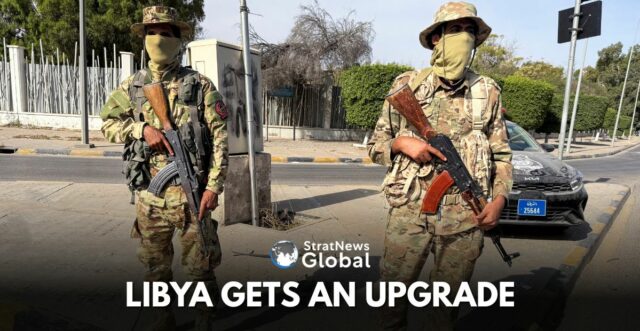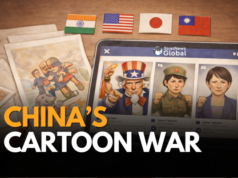India has appointed Dr. Hifzur Rahman, currently ambassador in Chad, as its next Ambassador to Libya. His appointment comes nearly a year after New Delhi reopened its diplomatic mission in Tripoli. The move signals a deeper strategic shift as India seeks to stabilise its presence in a region critical to its future energy security.
India had revived operations at its Tripoli embassy in mid-2024. Five years earlier it was forced to shut the mission when Libya’s civil war escalated. Since then, a small clerical team had kept basic consular work running, while India’s envoy in Tunisia oversaw broader diplomatic responsibilities.
The arrival of Dr Mohammed Aleem last year as chargé d’affaires marked the first return of an Indian diplomat to the Libyan capital since the withdrawal.
Why Libya Matters
Reopening the embassy restores essential services including visa processing, labour oversight and support for Indian expatriates who have been vulnerable to conflict-related disruptions and abductions over the past decade.
But the timing of India’s renewed diplomatic push is not merely about consular needs. With global crude markets entering a phase of volatility and the West tightening sanctions on Russian oil, Libya’s re-emerging energy sector offers a potentially valuable alternative for India.
Oil Diplomacy
Libya exported more than $30 billion worth of crude petroleum in 2023, making it a significant global supplier despite years of political instability. As Tripoli’s National Oil Corporation prepares its first licensing round in 17 years, the country is attempting to reopen vast swathes of unexplored territory, almost a third of its oil-rich regions remain untapped.
Indian companies such ONGC Videsh and Oil India Limited, both of which operated in Libya before withdrawing in 2011, have expressed interest in returning. Their familiarity with Libya’s Ghadames and Sirte basins is a potential advantage as the country courts foreign investors to rebuild its hydrocarbons infrastructure.
India imports roughly 85% of its crude requirements, and the geopolitical landscape is rapidly shifting. Russia, which became India’s largest oil supplier after 2022, now faces increasingly stringent scrutiny from the EU and warnings from Washington.
With the prospect of 100% tariffs on Russian trade if the Ukraine conflict continues, Indian refiners face rising risk and shrinking discounts. The narrowing price gap between Russian Urals and Middle Eastern grades has already weakened the financial incentive that once drove India’s pivot toward Moscow.
The pressures are compounded by global supply chain disruptions, including tensions in West Asia and shipping volatility in the Strait of Hormuz, which make diversification not simply desirable, but essential.
Embassy Security
India’s decision to deploy personnel from the Central Reserve Police Force to safeguard its Tripoli mission underscores the high-stakes nature of this engagement. Libya remains politically divided between rival administrations in the east and west, and although open conflict has receded, the security environment remains fragile.
New Delhi’s readiness to re-establish a full diplomatic presence suggests confidence that the situation has stabilised sufficiently to protect its interests and citizens, conditions necessary for long-term commercial involvement.





